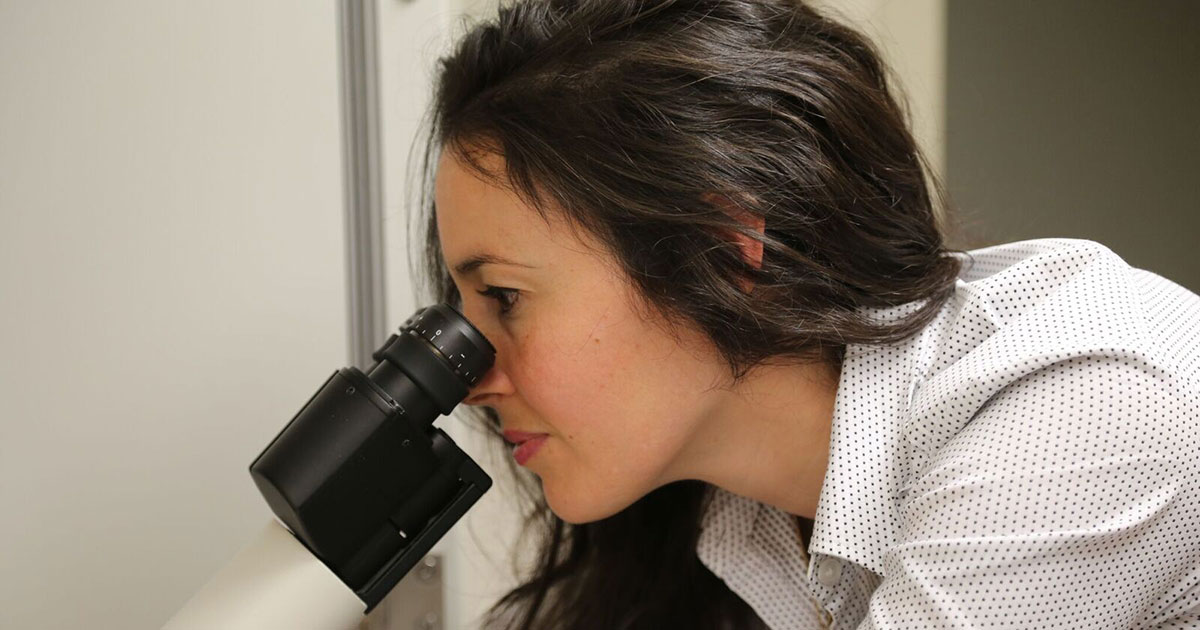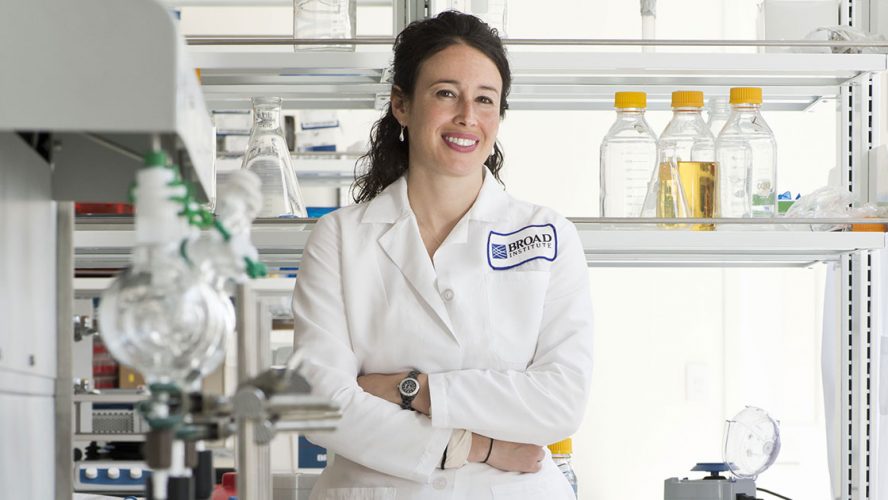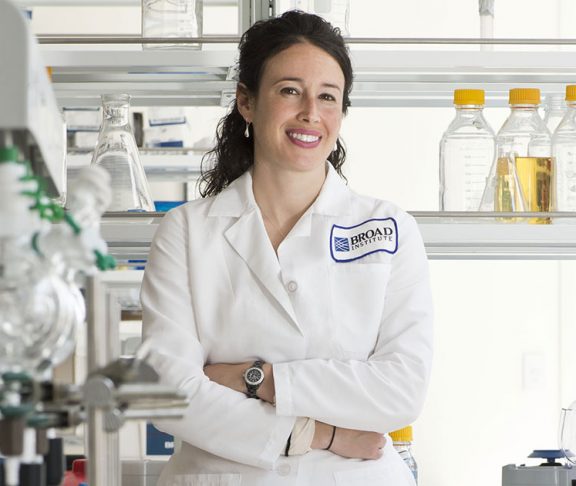Kadoch, a Ph.D., is an assistant professor of pediatric oncology at the Dana-Farber Cancer Institute, as well as an assistant professor of Biological Chemistry and Molecular Pharmacology at Harvard Medical School. When she joined the Harvard faculty in her late twenties, she was the youngest professor at the renowned medical school.
“I have always been hungry to make an impact,” says Kadoch, who grew up in Northern California and says she always had great teachers.
Four years ago, she started her own lab, Kadoch Lab at Dana-Farber, which now employs 24 people.
Problem solver
Kadoch likes to solve big problems. She and her laboratory are currently working to solve the connection between genome structure and cancer, and to identify new, unexpected therapeutic opportunities.
Her team at Foghorn Therapeutics, a company she launched with Flagship Ventures, is studying chromatin regulation — “the study of the architecture of our genome — which goes awry in a number of different cancers,” Kadoch says.

They call their work, “gene traffic control,” since Kadoch initially found that a rare pediatric cancer — synovial sarcoma — was caused by changes to proteins that regulated chromatin. She found similar mutations in over 20 percent of cancers, including lung, breast and kidney cancers, as well as rare cancers.
“These findings were so exciting and the discoveries opened a new realm of biology, enabling us to start a lab, and later a company, that could be dedicated to scientific investigation and therapeutic approaches for diseases driven by such processes,” says Kadoch, who wants both a rigorous lab and a way to translate the findings to patients and clinics.
Female leaders
The challenge now is helping women in science and medicine establish and grow their careers and take on leadership roles. Kadoch is particularly excited to see women leaders in the medical industry, including Laurie Glimcher, M.D. and scientist who is president and CEO of Dana-Farber Cancer Institute.
“There’s still a long way to go,” she says. “There’s still underrepresentation of women on boards of directors and again, in major leadership positions.”
In her lab, therapeutics company and in the classroom, Kadoch is mentoring the next generation of scientists, both male and female. She wants students and young professionals to identify dedicated mentors and then challenge themselves to the fullest.
“Anything is possible,” says Kadoch, concluding: “We are in a position to make major advancements.”

